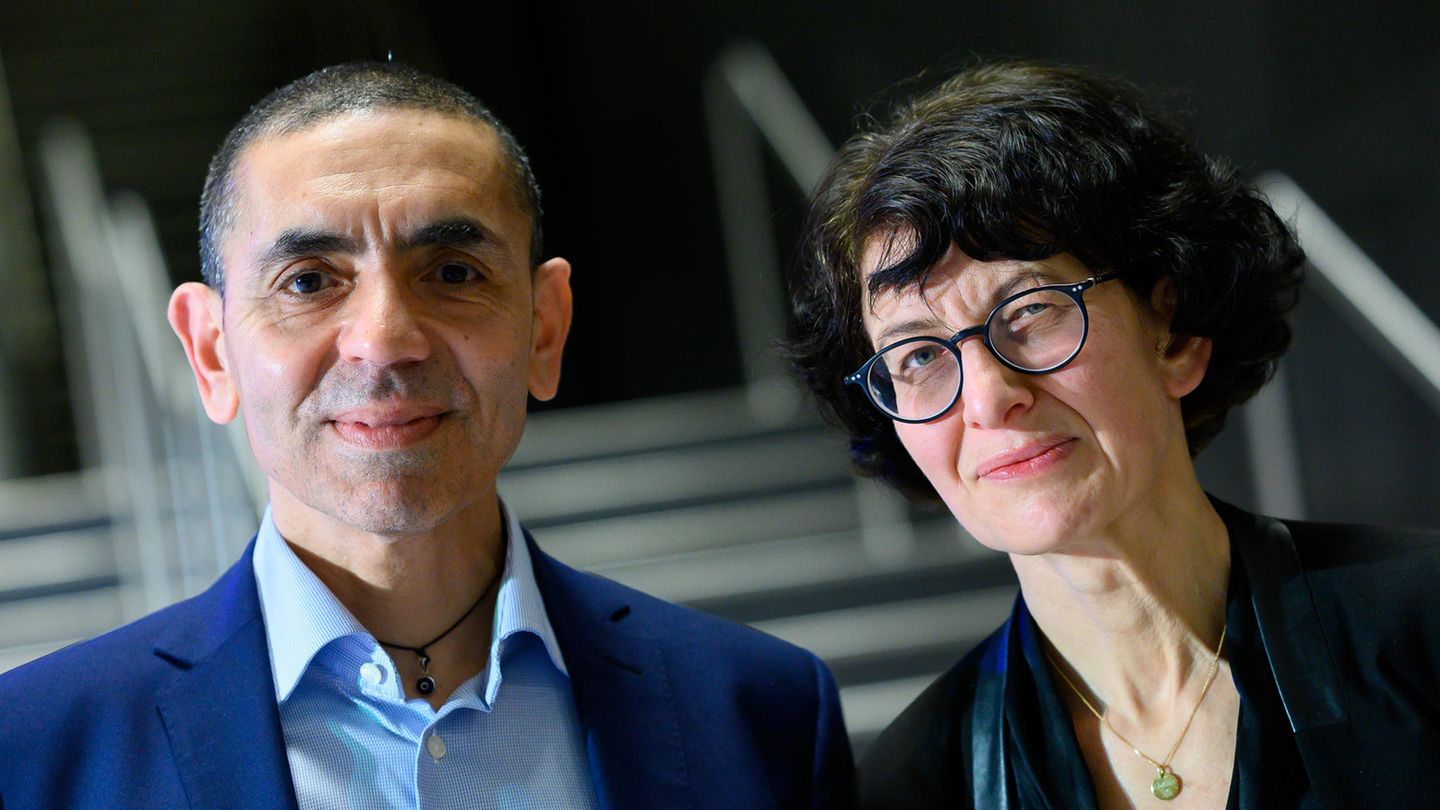Malaria is one of the most dangerous infectious diseases in the world. Hundreds of thousands of people die from it every year. The Mainz biotech company Biontech now wants to develop a vaccine – according to the manufacturer, it will be the first mRNA-based vaccine for malaria prevention.
The Mainz biotech company Biontech claims to be developing a vaccine against the dangerous tropical disease malaria. The potential vaccine candidate – like the well-known corona vaccine Comirnaty – will be based on so-called mRNA technology, the company announced on Monday. These types of vaccines contain the blueprint for a protein that the body makes antibodies against. In the case of the corona vaccine from Biontech / Pfizer, the protein is the spike protein of the virus, which the pathogen uses to dock onto human cells.
The development of the vaccine is part of a malaria project with which Biontech has set itself the goal of building sustainable vaccine production capacities on the African continent. The continent is considered to be the most severely affected by the infectious disease. Around 90 percent of all malaria cases worldwide occur there. In the long term, the created production capacities could be used to produce a wide variety of mRNA vaccines, including those against the coronavirus, according to a company statement.
The malaria project is part of the “eradicateMalaria” initiative launched by the “kENUP Foundation”. Details of the project will be presented on Monday, which will include Tedros Adhanom Ghebreyesus, Director General of the World Health Organization and Ursula von der Leyen, President of the European Commission. The project is supported by the WHO and “Africa CDC – Centers for Disease Control and Prevention”.
“Together we are doing everything we can to develop a safe and effective malaria vaccine based on mRNA,” Biontech co-founder Uğur Şahin is quoted as saying in a press release. “It should prevent the disease, reduce mortality and offer a sustainable solution for the African continent and other regions affected by malaria.”
Malaria causative agent
Malaria is one of the most dangerous infectious diseases in the world. Around 40 percent of the world’s population live in areas where the disease is endemic – that is, it occurs permanently and frequently. Around 200 million people are newly diagnosed with malaria every year, mostly in Africa. The causative agents of the disease are unicellular parasites of the genus Plasmodium. They are transmitted through mosquito bites.
Sick people develop a high fever, which alternates with fever-free phases. Headache and body aches, chills and gastrointestinal complaints are also typical of malaria. The prognosis is often poor, especially for children under the age of five. About three quarters of the estimated 600,000 malaria deaths annually affect children of this age.
Despite extensive research, the fight against malaria is troubling scientists around the world. Regionally different pathogens, co-infections with other germs and increasing resistance to existing drugs make the work of the researchers more difficult, it is said
Despite decades of research, there is no highly effective vaccination against malaria. Researchers at Oxford University recently reported that the vaccine candidate R21 / Matrix-M was 77 percent effective in young children. Serious side effects were not observed. The result has yet to be confirmed in a larger phase III study.
Dozens of vaccine candidates are also in development or clinical trials. So far, however, many of them have failed because of the effectiveness of at least 75 percent aimed at by the World Health Organization (WHO).
The so-called exposure prophylaxis remains particularly important in the fight against malaria: Impregnated mosquito nets and the use of insecticides should prevent people from becoming infected with the pathogen. There is also the option of taking preventive medication against the disease, for example when traveling to severely affected regions. However, the drugs can cause side effects and are not 100% effective.
Clinical study could start in 2022
The vaccine candidate to be developed by Biontech is said to be the first mRNA vaccine for malaria prevention. Before it can be approved, however, the vaccine candidate must first assert itself in larger clinical studies and prove its high effectiveness and good tolerance.
As the company announced, specialized teams at its headquarters in Mainz are currently working to identify suitable antigens for the vaccine. Biontech expects the start of a clinical study by the end of 2022.
Together with its partners, Biontech is currently developing vaccines against nine different infectious diseases, including tuberculosis. Another focus of research is in the area of individualized cancer medicine. 15 oncology programs are in the clinical stage. They are based on four different classes of active substances, including mRNA.
/




